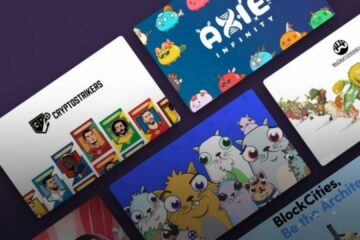Managing the process of minting digital tokens is important to consider when thinking about your investment in a project. Tokens are becoming increasingly popular as a way of supporting projects you believe in and there are many ways of acquiring tokens. It’s important to think about what you want out of this investment and do your research before making a decision, because not all projects with a token will be successful and therefore the token may not provide the return on investment that you’re looking for.
Before we go into what you should think about before investing, it is useful that we define some things first.
What are tokens and how do they work?
A token is a digital asset or form of currency that usually has value only within the network it belongs to. Tokens can be exchanged between peers and are used as both an accounting method and a mechanism for enforcing behavior on peer-to-peer networks (source). They can represent anything from access time (e.g., an hour of computer usage), financial instruments (e.g., IOUs), to restrictions on actions, goods or services available for purchase, etc.
What is Ethereum?
Ethereum is an open source public blockchain platform similar to Bitcoin but instead of simply tracking balance like Bitcoin it tracks “state”. This means state transitions happen through transactions which are composable pieces of code that run in the global environment with its own built-in programming language. This is an important feature because it enables developers to build decentralized applications on top of Ethereum (source).
What is the difference between Ether and tokens?
Tokens are tracked in the Ethereum blockchain while ether is another currency like Bitcoin that can be used to make transactions on this blockchain ( source ). Tokens need ether to exist, but not the other way around. You cannot operate with Ether without some token existing on Ethereum.
The process of minting digital tokens
The process of minting digital tokens is a process in which an organization sells its product or service and then issues a token to be used as a means of payment for that product or service.
There are many ways in which you can acquire tokens, such as: by contributing to the project, receiving them as part of the remuneration for your contribution, providing gamified elements to the products, providing intellectual input or consultancy. It is important to think about what you want out of this investment (or donation). Some tokens represent shares of a company and will give you voting rights; others will provide access to different types of content; some coins will allow you use certain products and services exclusively.
There are organizations that provide services for people who want to issue their own tokens and documents that serve as a guide for this, such as: the Interplanetary File System (IPFS) provides a standard to address and access files; Mobius provides an open source protocol token standard; Blockstack is a platform for decentralized applications; OpenZeppelin has served as an open framework of reusable and secure smart contracts.
All these organizations need to make public the information about each project they offer because it all goes through “Know Your Customer” (KYC), which is a requirement imposed by authorities in order to prevent fraud. Additionally, organizations can receive tax benefits if they register with the SEC or European equivalent., if you use contractors and freelancers they’ll also need to go through the KYC process.
It’s important that you read up on what you’re buying and do your research before making a decision because not all project with a token will be successful and as such no token may be able to provide you with the return on investment that you’re looking for. Also, many tokens represent currencies or assets so choosing one over another might seem like an impressive gain now but it could easily loose its value if people lose faith in it, just like how we saw with Bitcoin and Ethereum which halved their values in 2018.
There are different types of tokens: utility tokens, fiat-backed tokens, security tokens and equity tokens. Utility Tokens give access to products or services immediately after purchase, currency tokens will provide holders with currency that can be used to buy products or services, asset-backed tokens represent ownership of the issuing company’s assets and debt instruments, equity tokens entitle to dividends.
Things to consider when investing in a token-based project
When investing in a token-based project it is important to consider all the different things that would have an impact on how profitable your investment will be.
Consider what you want out of this investment (or donation). Some tokens represent shares of a company and give you voting rights; others will provide access to different types of content; some coins will allow you use certain products and services exclusively. If you’re not sure what it is that you want, think about something specific. An example would be “I’m looking for a coin with tax benefits.”
Be sure to do your research before making an investment or donation in case the project isn’t successful and in order to prevent fraud and in order to know everything there is to know about the project you’re supporting. It’s important that you read up on what you’re buying and do your research before making a decision because not all project with a token will be successful and as such no token may be able to provide you with the return on investment that you’re looking for. Also, many tokens represent currencies or assets so choosing one over another might seem like an impressive gain now but it could easily loose its value if people lose faith in it, just like how we saw with Bitcoin and Ethereum which halved their values in 2018.
Think about where this investment will get made (i.e., what exchange). Be sure to consider whether there are other coins similar to the one that interests you because chances are that they may give you more of a return than the one you’re looking at now.
Other important things to consider are: what company is behind the project; how long has the company been up and running; does it have an office; can you reach them by phone; who do they answer to? If it’s not transparent enough for your liking, perhaps this isn’t the right project for you.



0 Comments